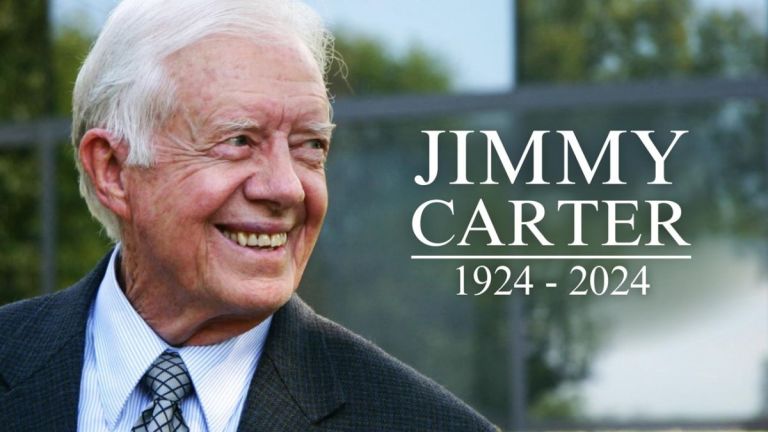Jimmy Carter the 39th President of the United States
A Presidency of Peace and Progress


January 9 is a national day of mourning for Jimmy Carter.
Jimmy Carter: A Presidency of Peace and Progress
Jimmy Carter, the 39th President of the United States, served from 1977 to 1981. His presidency was marked by significant domestic and foreign policy achievements, despite facing numerous challenges. Carter's commitment to human rights, peace, and environmental conservation left a lasting legacy.
Early Life and Political Career
Born on October 1, 1924, in Plains, Georgia, Jimmy Carter grew up in a rural farming community. He graduated from the United States Naval Academy in 1946 and served in the Navy until 1953. After leaving the Navy, Carter returned to Georgia, managed his family's peanut farm, and became involved in local politics. He served as a state senator from 1963 to 1967 and as the Governor of Georgia from 1971 to 1975.
Presidency and Major Accomplishments
One of Carter's most significant achievements was brokering the Camp David Accords in 1978. This historic peace agreement between Israel and Egypt marked the first time an Arab nation recognized Israel, leading to a lasting peace between the two countries. A strong emphasis on human rights characterized Carter's presidency. He believed the United States should lead by example and promote global human rights. His administration cut off aid to countries with poor human rights records and supported dissidents in the Soviet Union and other authoritarian regimes. Carter was an early advocate for environmental conservation. He established the Department of Energy and implemented policies to reduce the nation's dependence on foreign oil. He also signed the Alaska National Interest Lands Conservation Act, which protected over 100 million acres of land in Alaska. Carter worked to improve relations with the Soviet Union, which helped ease tensions between the two superpowers and reduce the risk of nuclear conflict. His administration negotiated the Strategic Arms Limitation Talks (SALT II) treaty, although it was never ratified due to the Soviet invasion of Afghanistan. Carter established full diplomatic relations with the People's Republic of China in 1979, marking a significant shift in U.S. foreign policy and opening the door for increased trade and cooperation between the two nations.
Post-Presidential Career
After leaving office in 1981, Jimmy Carter advocated for human rights and democracy. In 1982, he and his wife, Rosalynn, founded the Carter Center, a non-profit organization that promotes peace, democracy, and health worldwide. The Carter Center has been instrumental in monitoring elections, resolving conflicts, and combating diseases such as Guinea worm disease.
Legacy
Jimmy Carter was awarded the Nobel Peace Prize in
2002 for his decades of untiring effort to find peaceful solutions to international conflicts, advance democracy and human rights, and promote economic and social development. Despite facing challenges and a brutal re-election campaign, Jimmy Carter's presidency is remembered for its commitment to peace, human rights, and environmental conservation. His post-presidential work has further solidified his legacy as a champion of humanitarian causes.
More information:
https://www.usna.edu/Notables/featured/01carter.php
https://www.cartercenter.org/about/experts/jimmy_carter.html








